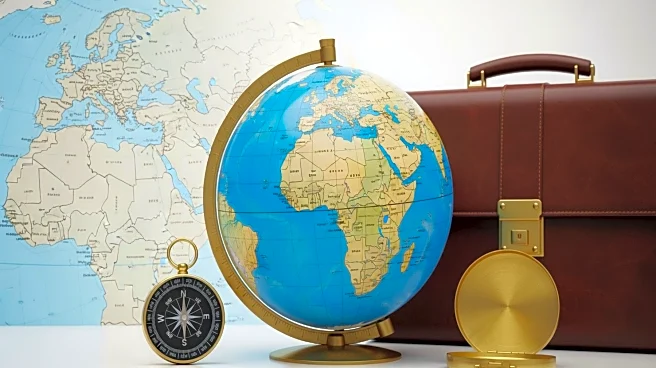What's Happening?
Russian Foreign Minister Sergey Lavrov recently avoided addressing allegations of human rights abuses by Russia's Africa Corps, formerly known as the Wagner Group, in Mali. During a press conference in Moscow,
Lavrov redirected the conversation to regional history, emphasizing Moscow's efforts to maintain influence in North Africa. Lavrov highlighted Russia's defense and energy cooperation with Algeria, while also expressing support for Morocco's Sahara Autonomy Plan. This diplomatic balancing act aims to sustain Russia's strategic relations with both Algeria and Morocco, despite potential tensions arising from these alliances.
Why It's Important?
The diplomatic maneuvers by Russia in North Africa are significant as they reflect Moscow's broader strategy to maintain influence in the region amidst scrutiny over its Africa Corps operations. By supporting Morocco's Sahara Autonomy Plan, Russia aligns itself with a growing number of countries backing Rabat's initiative, potentially straining relations with Algeria. This balancing act could impact regional stability and Russia's geopolitical standing, as it navigates complex relations with rival North African nations. The situation underscores the challenges faced by Russia in managing its foreign policy objectives while addressing allegations of misconduct by its military operations.
What's Next?
Russia's continued support for Morocco's Sahara Autonomy Plan may lead to diplomatic repercussions with Algeria, which could summon the Russian ambassador to protest Lavrov's comments. The evolving dynamics in North Africa may prompt further strategic adjustments by Moscow to maintain its influence and manage relations with both Algeria and Morocco. Additionally, the signing of a new maritime fisheries cooperation agreement between Morocco and Russia indicates a strengthening of bilateral ties, which could further influence regional alliances and economic partnerships.
Beyond the Headlines
Lavrov's deflection of Africa Corps allegations by focusing on historical regional tensions highlights the complex interplay of colonial legacies and current geopolitical interests in North Africa. The emphasis on historical border issues and ethnic group distributions reflects deeper cultural and political dimensions that continue to affect regional stability. Russia's diplomatic strategy in North Africa may also influence broader international relations, as it seeks to balance its interests amidst competing regional powers and historical grievances.









